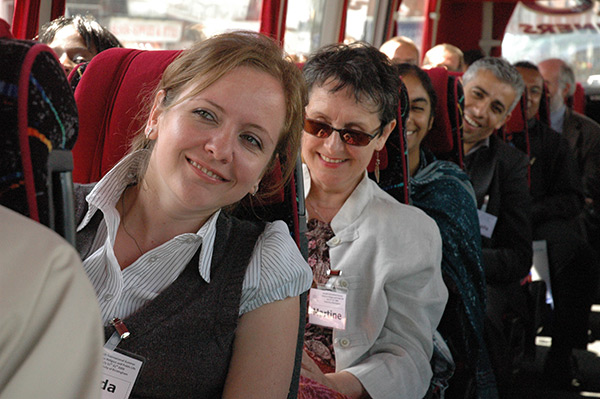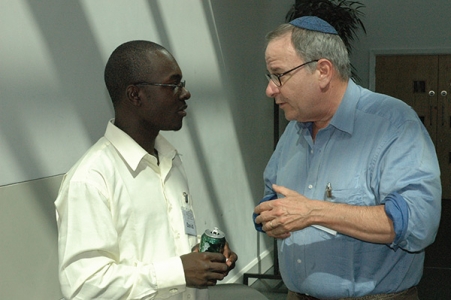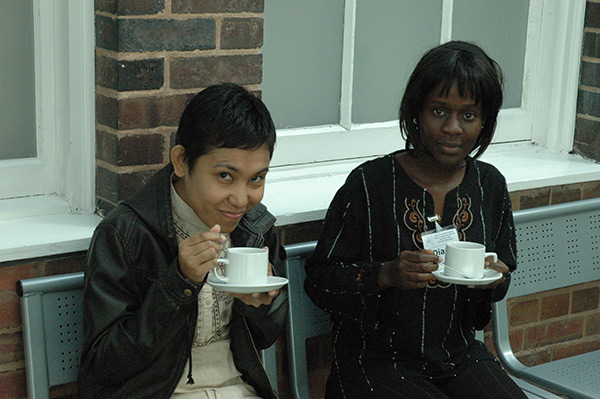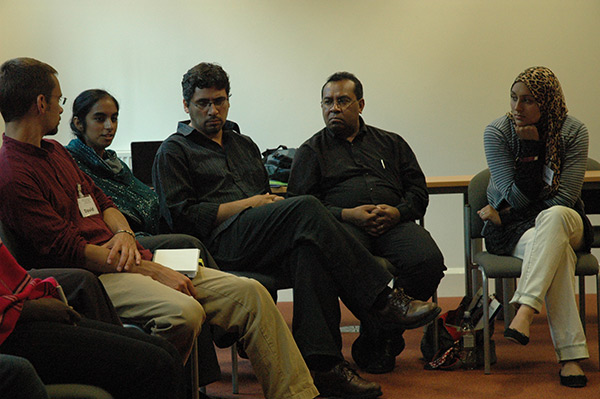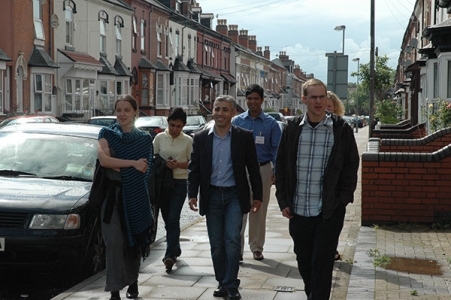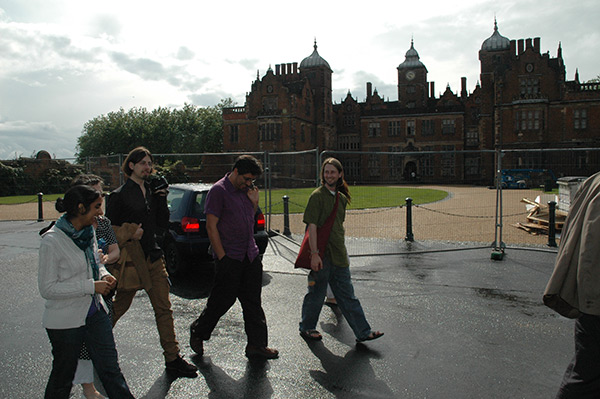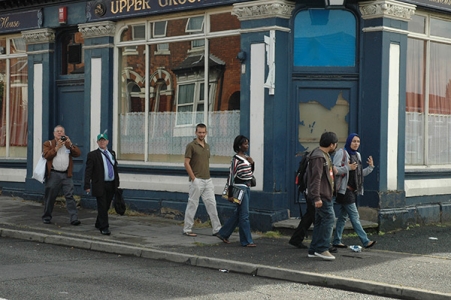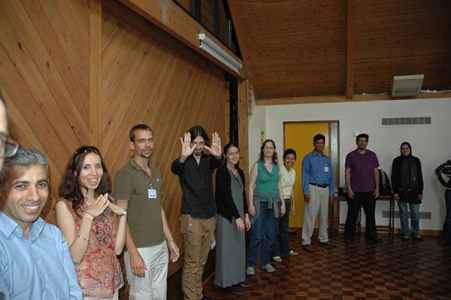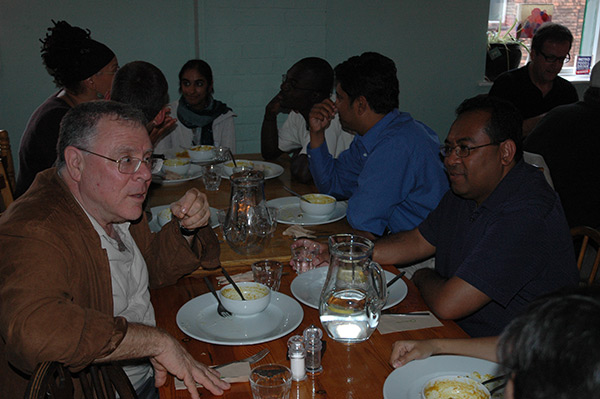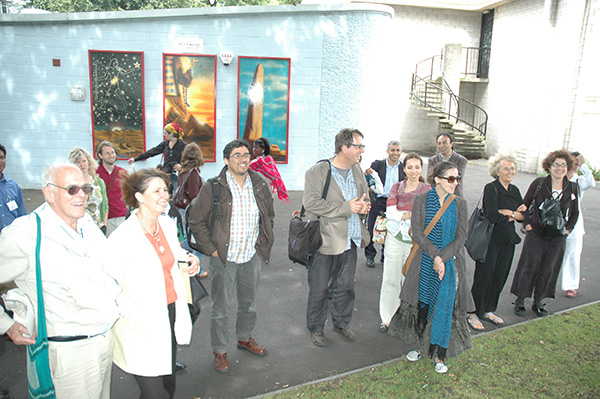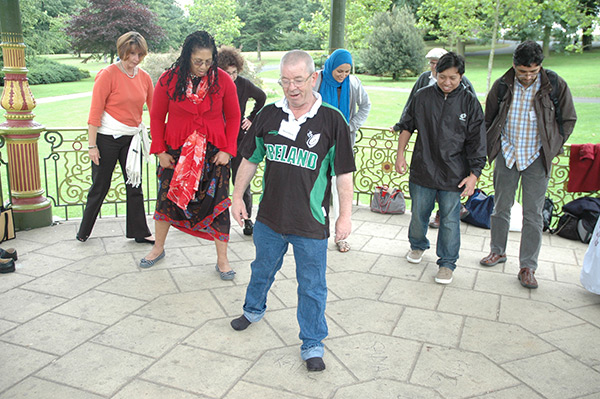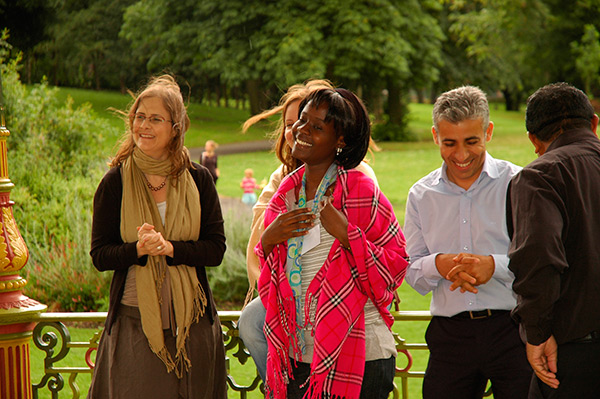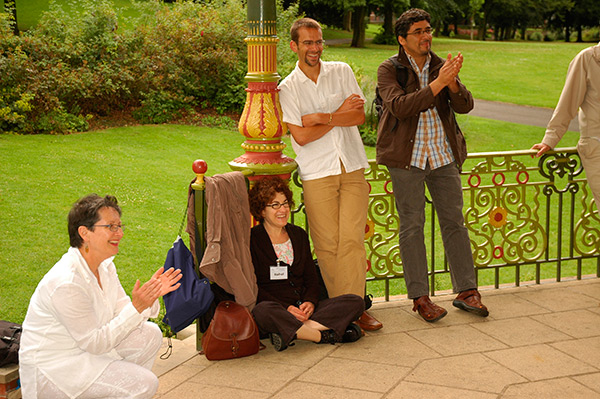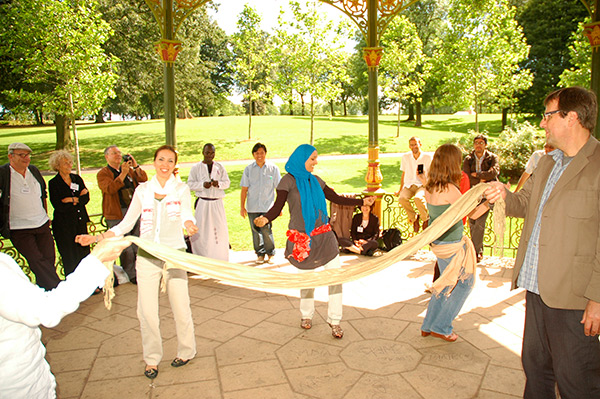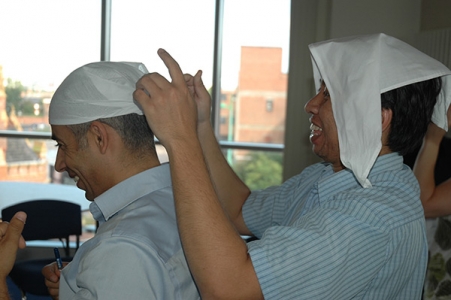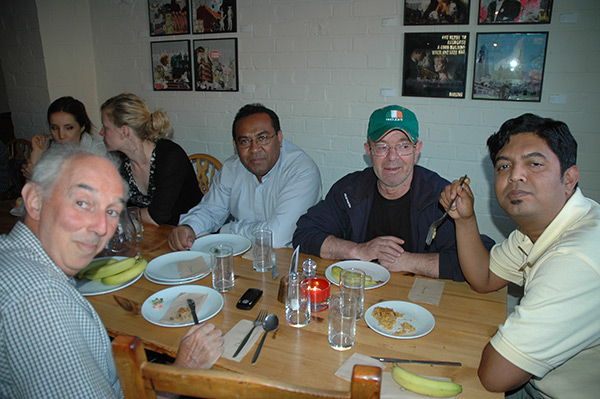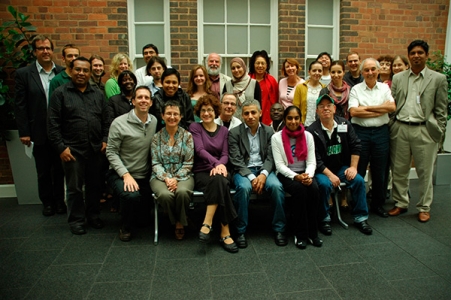July 11-21, Birmingham, United Kingdom
In 2009 we met in Birmingham, United Kingdom. Birmingham is the second-largest city in Great Britain and is likely soon to have an “ethnic minority, majority.” This year’s school continued the exploration of urban plurality begun in the 2008 school (“The Good City: Living Together Differently,” described below), focusing its gaze on “The Language of Neighborhood and Practices of Public Life.”
“I found that my different point of view can become another’s point of learning to accept differences.”
(Fellow, 2009)
Our concern for this school was with the emergent norms of life in a multi-confessional and multi-ethnic global city. Tensions among different immigrant communities and between those communities and longer-settled residents often revolve around divergent understandings of what a neighborhood is, and what a citizen’s obligations to the local community are. Birmingham is home to many different ethnic groups and religious communities, among them Muslim, Hindu, Sikh, Buddhist, Jewish, and numerous Christian denominations. In a city as culturally diverse as this, understanding the global connections of local neighborhoods to communities with radically different visions of what community means is critical to coexistence among them.
The neighborhoods of Birmingham comprise concentrations of multi-lingual and culturally diverse traditions, differing conceptions of communal order, and contested ideas of who—and what—defines the symbolic and physical space of the neighborhood. Bringing together people from disparate backgrounds, countries, and religious orientations—all with differing commitments, histories, and dreams—the ISSRPL enabled us to achieve new insights into our understandings of community and living with difference. In exploring the practices of public life in the neighborhoods of Birmingham, the ISSRPL facilitated reflective experiences through which we came closer not only to seeing the other and seeing the other see us but also, perhaps more importantly, to learning to see ourselves view the other.
2009 Local Hosts: University of Birmingham & Birmingham Faith Leaders Group
